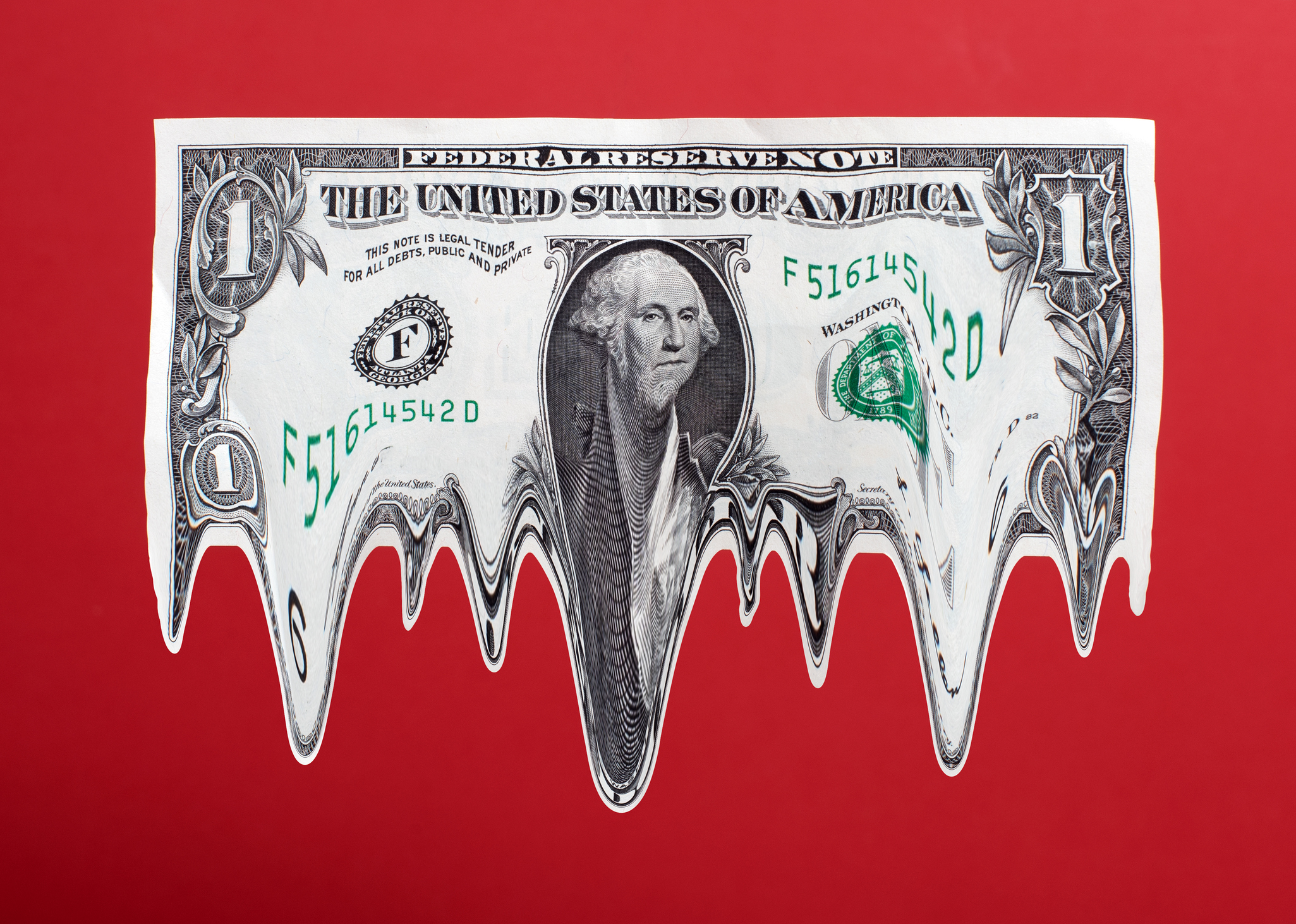Putting a price on Big Oil – how to value oil stocks
The future of oil is uncertain, but some of the major oil companies are not being given the benefit of the doubt, says Cris Sholto Heaton.

Get the latest financial news, insights and expert analysis from our award-winning MoneyWeek team, to help you understand what really matters when it comes to your finances.
You are now subscribed
Your newsletter sign-up was successful
Want to add more newsletters?

Twice daily
MoneyWeek
Get the latest financial news, insights and expert analysis from our award-winning MoneyWeek team, to help you understand what really matters when it comes to your finances.

Four times a week
Look After My Bills
Sign up to our free money-saving newsletter, filled with the latest news and expert advice to help you find the best tips and deals for managing your bills. Start saving today!
Shares in Big Oil – BP, Chevron, ConocoPhillips, Eni, Exxon Mobil, Royal Dutch Shell and Total – collapsed at the start of the pandemic and have remained out of favour even as the market recovers. BP and Shell (both down 35% since the beginning of 2020) are especially weak, but Eni, Exxon, Chevron, Conoco and Total (down 15%-25%) are also lagging, despite oil rebounding to where it was three years ago.
The evident fear among many investors is that these firms operate in a dying industry. The world will move away from oil and they will be out of a job. This is a very real uncertainty – but as profits rebound, it’s worth recalling how much cash these firms can generate and what their options are.
Running down the reserves
The seven oil majors had reserves to production (R/P) ratios that ranged between 8.3 years (Shell) and 15.5 (Exxon) at the end of the 2019 fiscal year (I’m using 2019 because the oil-price collapse in 2020 meant some of them wrote down reserves that should be viable with oil back at higher levels). Free cash flow (FCF) also varies greatly: Shell averaged almost $25bn per year across 2018 and 2019 (when oil was $65-$75 per barrel), while Exxon averaged almost $11bn. This isn’t because Exxon has weaker underlying cash flow: instead, Shell is reinvesting less cash in finding new reserves.
MoneyWeek
Subscribe to MoneyWeek today and get your first six magazine issues absolutely FREE

Sign up to Money Morning
Don't miss the latest investment and personal finances news, market analysis, plus money-saving tips with our free twice-daily newsletter
Don't miss the latest investment and personal finances news, market analysis, plus money-saving tips with our free twice-daily newsletter
We can do a crude calculation for how much spare cash each firm might generate in just these booked years of reserves if oil stays around $70 (the average across 2018 and 2019). Assuming each firm pays off its net debt steadily over that time and using a discount rate of 5%, I’d estimate that the present value of future free cash flows is about 80% of Shell and BP’s market cap, about two-thirds for Total and Eni, but more like 40% for Chevron and Conoco, and 30% for Exxon.
I stress this is very crude. Shell won’t shut down in seven years’ time, for example: the reserves won’t be used up evenly and there will be a long tail of production. All the majors – even the ones with low R/P ratios – are still investing in finding new resources. The split between oil and gas varies between companies, as does the cost and complexity of their projects. FCF in 2018 and 2019 may not be an ideal proxy for long-term cash flows. You could easily build a far better model.
Still, it’s hard to avoid the sense that BP and Shell are almost priced as if they are in run-off, with the market putting little value on their long-term prospects in either oil and gas or renewables. Meanwhile, others – eg, Exxon – are priced to suggest their new oil and gas investments will have long-term value and not end up stranded. The difference at least partly reflects how much BP and Shell’s dividend cuts alienated income investors. With payouts starting to rise (up 38% at Shell and 4% at BP), then so long as the world doesn’t abandon oil faster than seems likely, both look extremely cheap plays in a cheap sector.
| The seven oil majors | ||||
| Row 1 - Cell 0 | Market cap. | Net debt | R/P 2019 | Free cash flow avg. 2018/19 |
| BP | $62bn | $33bn | 14 | $8.3bn |
| Chevron | $199bn | $35bn | 10 | $15bn |
| Conoco | $76bn | $11bn | 11 | $5.3bn |
| Eni | $44bn | $12bn | 11 | $4.5bn |
| Exxon | $244bn | $57bn | 16 | $10.9bn |
| Shell | $115bn | $66bn | 8 | $24.6bn |
| Total | $100bn | $25bn | 12 | $10.3bn |
| Sources: Bloomberg, Morningstar |
Get the latest financial news, insights and expert analysis from our award-winning MoneyWeek team, to help you understand what really matters when it comes to your finances.

Cris Sholt Heaton is the contributing editor for MoneyWeek.
He is an investment analyst and writer who has been contributing to MoneyWeek since 2006 and was managing editor of the magazine between 2016 and 2018. He is experienced in covering international investing, believing many investors still focus too much on their home markets and that it pays to take advantage of all the opportunities the world offers.
He often writes about Asian equities, international income and global asset allocation.
-
 Early signs of the AI apocalypse?
Early signs of the AI apocalypse?Uncertainty is rife as investors question what the impact of AI will be.
-
 Reach for the stars to boost Britain's space industry
Reach for the stars to boost Britain's space industryopinion We can’t afford to neglect Britain's space industry. Unfortunately, the government is taking completely the wrong approach, says Matthew Lynn
-
 How a dovish Federal Reserve could affect you
How a dovish Federal Reserve could affect youTrump’s pick for the US Federal Reserve is not so much of a yes-man as his rival, but interest rates will still come down quickly, says Cris Sholto Heaton
-
 Why it might be time to switch your pension strategy
Why it might be time to switch your pension strategyYour pension strategy may need tweaking – with many pension experts now arguing that 75 should be the pivotal age in your retirement planning.
-
 Star fund managers – an investing style that’s out of fashion
Star fund managers – an investing style that’s out of fashionStar fund managers such as Terry Smith and Nick Train are at the mercy of wider market trends, says Cris Sholto Heaton
-
 How to add cryptocurrency to your portfolio
How to add cryptocurrency to your portfolioA new listing shows how bitcoin might add value to a portfolio if cryptocurrency keeps gaining acceptance, says Cris Sholto Heaton
-
 Investing in forestry: a tax-efficient way to grow your wealth
Investing in forestry: a tax-efficient way to grow your wealthRecord sums are pouring into forestry funds. It makes sense to join the rush, says David Prosser
-
 The MoneyWeek investment trust portfolio – early 2026 update
The MoneyWeek investment trust portfolio – early 2026 updateThe MoneyWeek investment trust portfolio had a solid year in 2025. Scottish Mortgage and Law Debenture were the star performers, with very different strategies
-
 Pundits had a bad 2025 – here's what it means for investors
Pundits had a bad 2025 – here's what it means for investorsThe pundits came in for many shocks in 2025, says Max King. Here is what they should learn from them
-
 New year, same market forecasts
New year, same market forecastsForecasts from banks and brokers are as bullish as ever this year, but there is less conviction about the US, says Cris Sholto Heaton